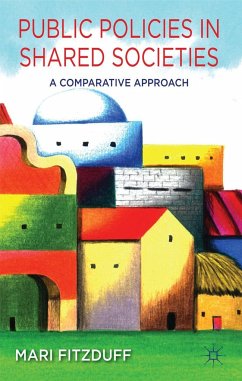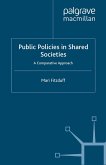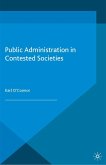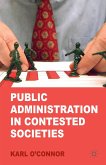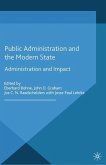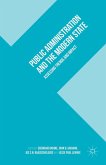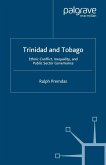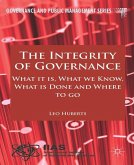Communities throughout the world are increasingly diverse in their racial, ethnic and religious make up. Using examples drawn from over 50 countries in a variety of fields from economics to education, this book explores how governmental, economic and social institutions are adapting their policies to create more cohesive and peaceful societies.
"This book marks an important step forward in thinking. We know the democracy deficit requires a culture of democracy as well as free and fair elections. Mari Fitzduff and her colleagues show how the development deficit requires conscious conflict resolution and prevention strategies and the shared society work they describe also begins to point to the dignity deficit which is the next major challenge. This is not a simplistic recipe for success but a menu with each different course informed by a range of options, evidenced out of a remarkable array of field experiences. I think it is destined to be a significant guide and reference text in our field for students, policy-makers and the hands-on operators who have to make it all happen." - John, Lord Alderdice of Knock, Convenor of the Liberal Democrats in the House of Lords and formerly Leader of the Alliance Party of Northern Ireland.
"The ability to manage 'difference' and 'differences' for the public good is one of the most important challenges of the 21st century. This book sheds a deeply informed light on the subject, makes a compelling case why it is so important, and gives sage guidance on how to address. Most usefully, it presents interdisciplinary approaches that integrate conflict resolution and prevention into the key domains of societal interaction - education, governance, land, environment and more - and offers concrete and successful case studies which demonstrate the kind of leadership and governance that all countries should aspire toward." - Gay Rosenblum-Kumar, works at an intergovernmental organization on strengthening national capacities and institutions for conflict prevention and transformation in divided societies
"What you have in your hands is a thorough and comprehensive handbook for those working to bridge a divided society. The information is easily adaptable to every society aspiring to build an inclusive and equal future for all. Fitzduff and her colleagues bring here intellect, passion, and expertize which is of great value. This book should be on every decision-maker's desk. I know I will be referring to it frequently, despite having 30 years as a practitioner experience in the field." - Mohammed Darawshe, Co-executive Director, The Abraham Fund Initiatives
"While many books focus on the difficulties caused by divided societies, this luminous volume stands out for its willingness to tackle the complexity of creating shared societies. The authors break important new conceptual ground, presenting an overarching framework for creating shared societies, from conflict analysis to policy options. Even more important, they shine a light on issues of sharing and division in specific contexts such as land reform, culture and education, developing new lenses for peacebuilding along the way. Fascinating case studies, charts, and matrices provide concrete examples of shared political, legal, and cultural space, and add heft to the theoretical analysis. This book should find its way onto the shelf of every serious student of peacebuilding - and anyone who cares about peace in the increasingly divided societies in which we live now." - Melanie Greenberg, President and CEO, Alliance for Peacebuilding
"The ability to manage 'difference' and 'differences' for the public good is one of the most important challenges of the 21st century. This book sheds a deeply informed light on the subject, makes a compelling case why it is so important, and gives sage guidance on how to address. Most usefully, it presents interdisciplinary approaches that integrate conflict resolution and prevention into the key domains of societal interaction - education, governance, land, environment and more - and offers concrete and successful case studies which demonstrate the kind of leadership and governance that all countries should aspire toward." - Gay Rosenblum-Kumar, works at an intergovernmental organization on strengthening national capacities and institutions for conflict prevention and transformation in divided societies
"What you have in your hands is a thorough and comprehensive handbook for those working to bridge a divided society. The information is easily adaptable to every society aspiring to build an inclusive and equal future for all. Fitzduff and her colleagues bring here intellect, passion, and expertize which is of great value. This book should be on every decision-maker's desk. I know I will be referring to it frequently, despite having 30 years as a practitioner experience in the field." - Mohammed Darawshe, Co-executive Director, The Abraham Fund Initiatives
"While many books focus on the difficulties caused by divided societies, this luminous volume stands out for its willingness to tackle the complexity of creating shared societies. The authors break important new conceptual ground, presenting an overarching framework for creating shared societies, from conflict analysis to policy options. Even more important, they shine a light on issues of sharing and division in specific contexts such as land reform, culture and education, developing new lenses for peacebuilding along the way. Fascinating case studies, charts, and matrices provide concrete examples of shared political, legal, and cultural space, and add heft to the theoretical analysis. This book should find its way onto the shelf of every serious student of peacebuilding - and anyone who cares about peace in the increasingly divided societies in which we live now." - Melanie Greenberg, President and CEO, Alliance for Peacebuilding

